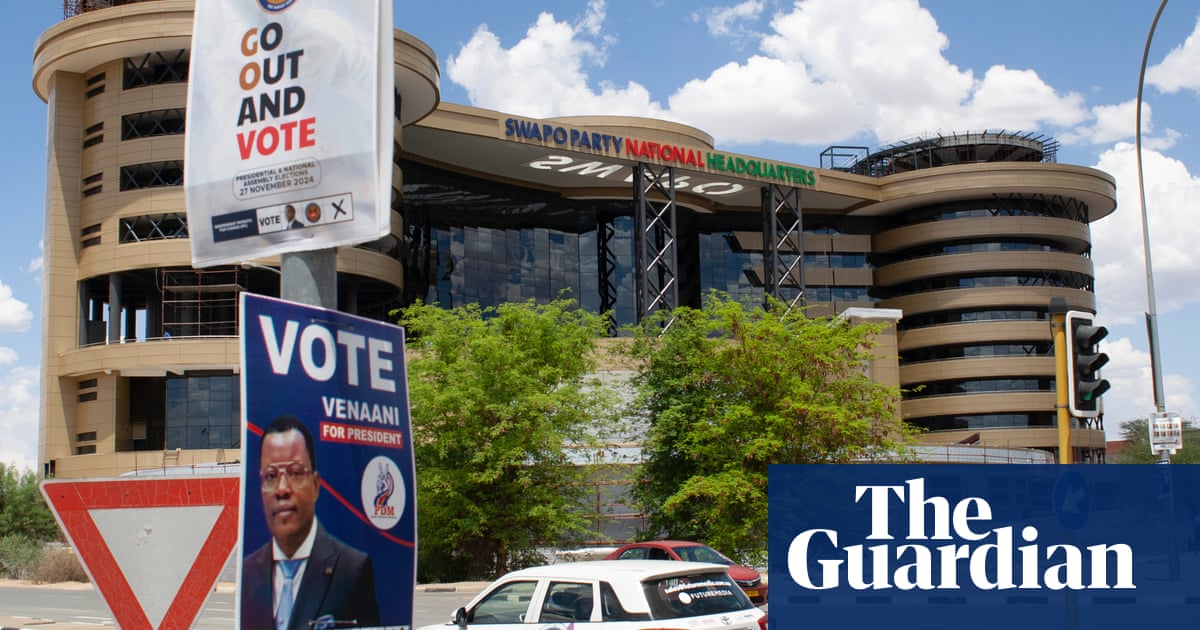Namibians are going to the polls with the longtime ruling party’s parliamentary majority under threat if dissatisfied young people turn out in big numbers amid a wave of anti-incumbent sentiment globally.
The Swapo party could also be forced to contest a second round in the presidential election for the first time since the sparsely populated southern African country became independent from South Africa in 1990.
High unemployment and younger generations with no memory of Swapo’s fight against South Africa’s apartheid regime have eroded the party’s support, drawing parallels to elections earlier this year in neighbours South Africa, where the African National Congress lost its majority, and Botswana, where the party that had ruled since 1966 was trounced.
However, Namibia’s opposition is fragmented, with analysts noting that young people would very likely have to turn out in large numbers to counter Swapo’s support base in the country’s rural but densely-populated north.
“Despite the fact that Swapo has been a party in decline, if the 2019 elections are anything to go by, I think they will still remain a dominant party,” said Rui Tyitende, a lecturer at the University of Namibia.
“But if young people [under 35], who comprise 42% of the electorate, show up at the polls, I think there will be a [presidential election] runoff, because they will not vote for Swapo. They are disillusioned.”
In 2019, Hage Geingob, who died in February, won the presidency for a second term with 56% of the vote – a steep drop from the 87% he had secured in 2014. Swapo secured 65% of the parliamentary vote.
Panduleni Itula came second in 2019 as an independent presidential candidate, with 29% of the vote. He is running again, against the country’s vice-president, the former foreign minister Netumbo Nandi-Ndaitwah.
Nandi-Ndaitwah, who would be Namibia’s first female president if she wins Wednesday’s vote, needs more than 50% to avoid a second round vote.
“She comes across as a stateswoman, a seasoned diplomat, very knowledgeable in terms of public policy, and also … not tainted by corruption,” the political analyst Rakkel Andreas said of the 72-year-old Swapo candidate.
Itula, a former Swapo member who returned to Namibia in 2013 after studying and working as a dentist in the UK for more than three decades, is running for a new party, the Independent Patriots for Change (IPC).
“What Itula represents is change, hope for change,” said Andreas, pointing to high unemployment levels – in 2023, 19.4% of Namibians were out of work, according to the World Bank, rising to 40% of 18- to 35-year-olds.
Without opinion polls, the outcome of the election in the country of 3 million people is hard to predict, said Graham Hopwood, the executive director of the Institute for Public Policy Research, a Namibian thinktank.
“It’s very clear that this is going to be the closest election since independence,” he said. “My personal view is Swapo has been the dominant party since 1990 and will still be a dominant party after this election, but we’re just not sure how dominant it will be.”
∎